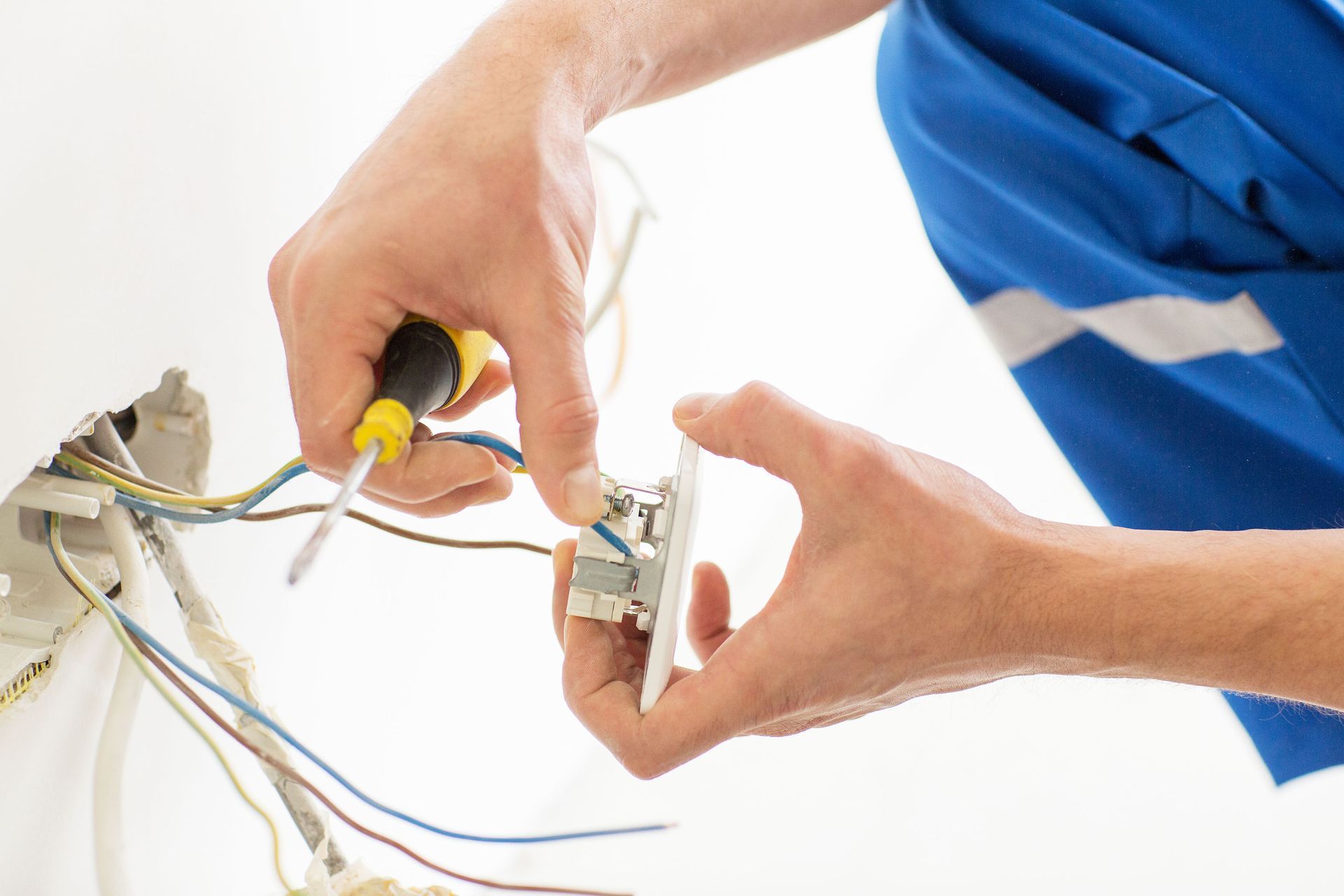What to Look for When Hiring a Licensed Local Electrician
Finding the right licensed electrician is crucial for ensuring safety, quality, and efficiency in any electrical project. This article explores key factors to consider when hiring a local electrician. Understanding these aspects can help homeowners and businesses make informed decisions that meet their specific needs and compliance standards. Electrical work, by its very nature, is complex and risky, making it vital to hire only professionals who adhere to industry standards and practices.
Verify Licensing and Insurance
The first step in hiring a local electrician is to ensure they have the appropriate licenses as required by your state or local jurisdiction. Licenses are a testament to an electrician’s qualifications and assure that they have the necessary training and skills. Each region may have different requirements and standards for licensing, so it's essential to verify these before proceeding. Without the correct licensing, you risk poor quality work and potential code violations.
Having a license isn't enough if it isn’t in good standing or has expired. It’s critical to verify the active status of an electrician’s license to ensure you are working with a qualified and legally compliant professional. You can typically confirm this with the state licensing board through online databases or by contacting them directly. Working with an electrician whose license is inactive can invalidate your insurance claims or inspections.
In addition to licensing, proper insurance coverage is essential when hiring an electrician. Electrical work entails risks, so it’s crucial that an electrician has liability insurance to cover any accidental damage or injuries that might occur. You should also check for workers’ compensation insurance, which protects workers in case of on-site injuries. According to the National Center for Biotechnology Information, approximately 1,000 deaths in the U.S. are attributed to electrical injuries annually, underscoring the importance of adequate insurance. Verifying an electrician's insurance can protect you from being liable for any mishaps.
Evaluate Experience and Expertise
Experience is a critical factor when selecting an electrician, as it reflects their competence and reliability. An electrician who has been in the business for many years likely has encountered and resolved a variety of electrical challenges. Evaluating their years in business can help you gauge their industry knowledge and ability to adapt to new technology. Moreover, experienced electricians have refined their skills and techniques over time, offering you higher quality service.
Electricians often specialize in specific areas, whether it’s residential, commercial, or industrial electrical work. Identifying if the electrician specializes in your type of project is crucial. A specialist will have the necessary tools and knowledge specific to the needs of your project, ensuring efficiency and compliance. By opting for an electrician with a relevant specialization, you reduce the risk of errors and oversights. Adaptability and depth of knowledge in their field ensure your project will benefit from tailored expertise.
References and past projects can provide valuable insights into an electrician's work ethic and quality. Requesting details of previous clients and projects allows you to verify claims of competence. Speaking to former clients offers an unbiased perspective on the electrician’s reliability, punctuality, and problem-solving capabilities. Evaluating past projects reveals the electrician's technical proficiency and ability to complete tasks efficiently. A strong record of successful projects typically indicates a trustworthy and skilled professional.
Consider Local Reputation
Local recommendations are an excellent resource for evaluating an electrician’s reputation within your community. Asking neighbors or colleagues for their experiences can reveal insights you won’t find online. Personal recommendations often offer detailed feedback about reliability, professionalism, and quality of work. Moreover, a well-recommended local electrician likely has a strong local network and understands regional regulations and requirements. This localized knowledge and positive community standing contribute to a smoother, more personalized service experience.
Online reviews can provide a broader view of an electrician’s reputation and track record. When evaluating online reviews, focus on specifics within feedback, such as punctuality, problem resolution, and overall satisfaction. While reviews are informative, consider them alongside other factors for a well-rounded evaluation. Awareness of the general consensus can guide you toward a reliable and professional electrician.
Local professional networks and affiliations further establish an electrician’s credibility and expertise. Involvement in these networks implies access to the latest industry information, tools, and trends. Engaging with electricians within these circles provides you with access to shared experiences and peer evaluations. Such networks often emphasize professional development, ensuring members uphold ethical standards and quality service. Trusting a network-affiliated electrician often means partnering with a professional committed to excellence.
Evaluate Communication and Professionalism
Effective communication is integral to any successful working relationship, and responsiveness is a key aspect. An electrician’s promptness in responding to inquiries reflects their commitment to customer service and attentiveness. Evaluating responsiveness before hiring provides insight into their availability and reliability. A lack of timely communication can lead to misunderstandings or delays, impacting your project negatively. Choosing a local electrician who prioritizes clear communication ensures smooth project execution and helps build trust.
The quality of your interactions with a local electrician speaks volumes about their professionalism and integrity. A professional electrician communicates clearly, listens to your needs, and provides informed recommendations. Polite and courteous interactions indicate a respectful and responsible approach to customer service. Reliable communication establishes a collaborative atmosphere conducive to addressing concerns swiftly.
Understanding an electrician’s approach to problem-solving is crucial, as challenges may arise during any project. Their strategy for handling difficulties can reflect their experience and adaptability. Observing their problem-solving skills during initial meetings or smaller tasks can provide valuable insights. A patient and methodical approach guarantees efficient resolution of issues without compromising safety or quality.
Verify Compliance and Safety Measures
Compliance with local codes and industry standards is mandatory for all electrical work. Ensuring your local electrician adheres to these regulations protects your project from legal issues and safety hazards. By adhering to codes, electricians ensure their work is safe, efficient, and recognized by inspection authorities. Overlooking these standards jeopardizes your project and can lead to costly modifications or sanctions. Consistent compliance builds confidence in the quality and sustainability of your electrical installations.
An electrician’s commitment to safety protocols is vital in safeguarding against workplace accidents and ensuring a secure work environment. Safety measures, such as wearing appropriate gear and following proper procedures, mitigate risks on-site. Thoroughly discussing the electrician’s safety practices provides assurance that they prioritize safety as much as quality. Safety-oriented electricians protect both their well-being and that of everyone involved in the project. This commitment minimizes liability and promotes a culture of safety-first in all operations.
Regular safety training enhances an electrician's job performance and substantially reduces risks on-site. Confirming that an electrician periodically undertakes safety training reflects their dedication to maintaining high safety standards. These training sessions keep staff informed about new hazards and equip them with the skills to address them effectively. Well-trained electricians are better prepared to mitigate risks, ensuring safety for themselves and any others present. Prioritizing safety training not only aligns with industry regulations but also signifies professionalism and diligence.
Hiring a licensed local electrician involves more than just scheduling a service—it's about ensuring reliability, safety, and quality. By thoroughly researching and considering the above factors, individuals can partner with the right electrician who can safely and effectively meet their needs. Proper vetting and scrutiny of credentials, expertise, and communication can greatly influence the success and safety of your electrical projects. Contact Cavaliere Electric to speak with a licensed and qualified electrician.



Share On: